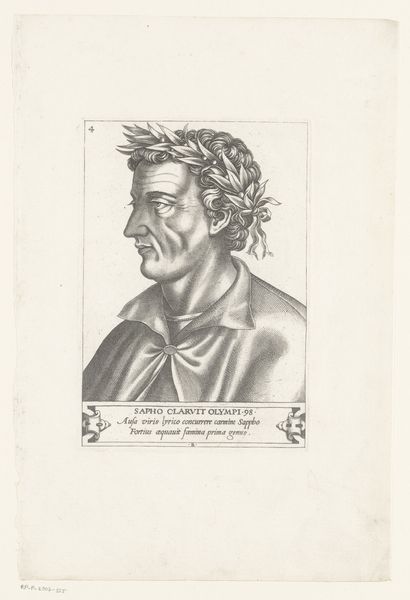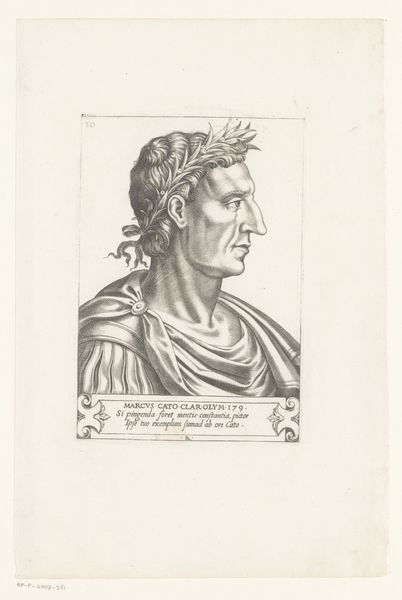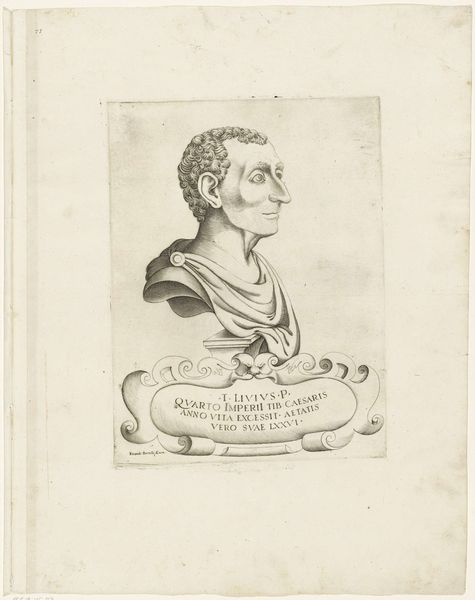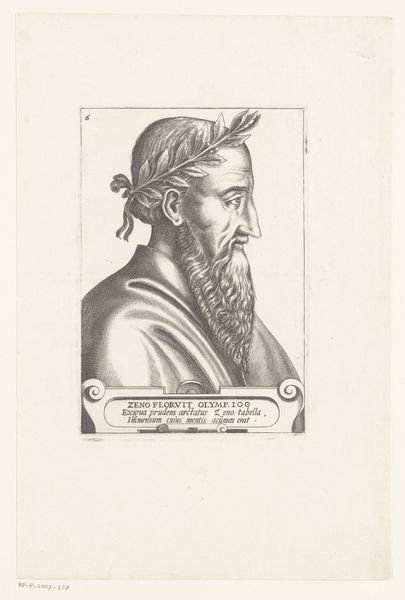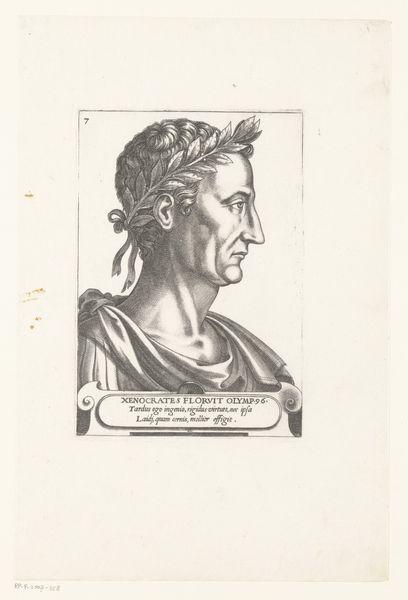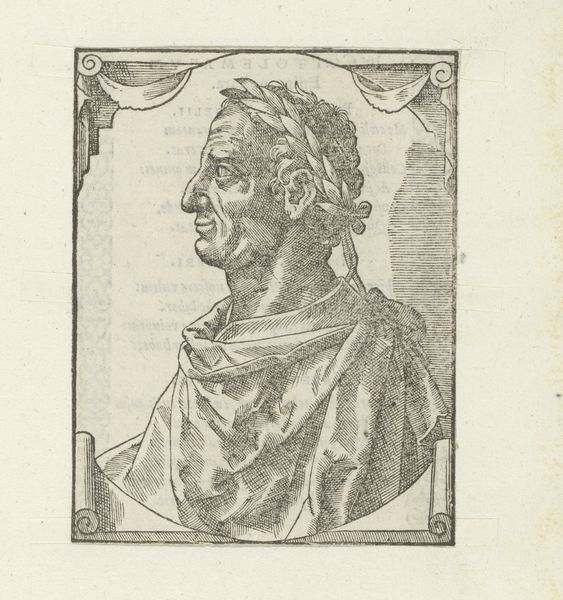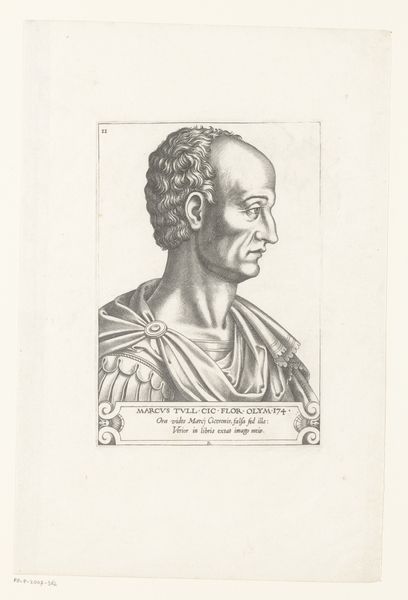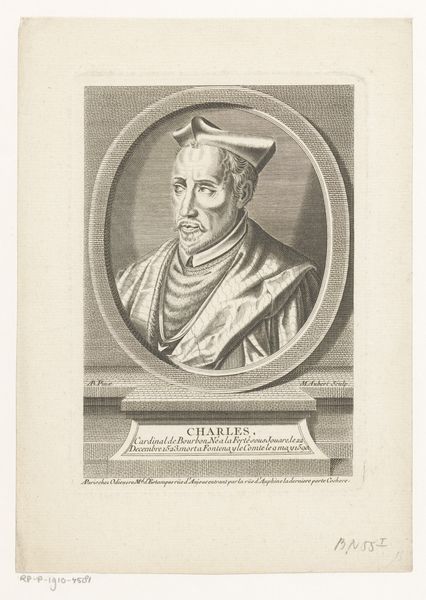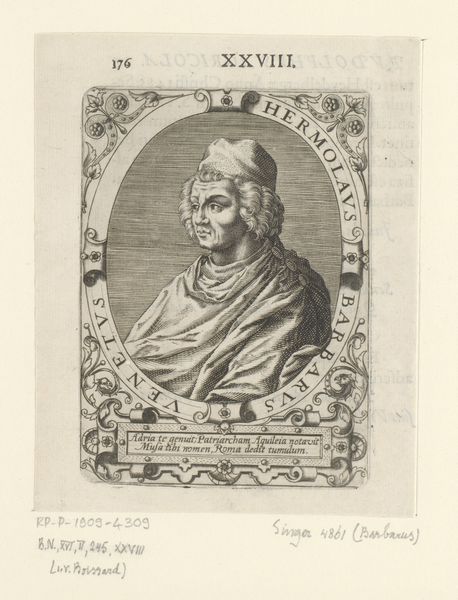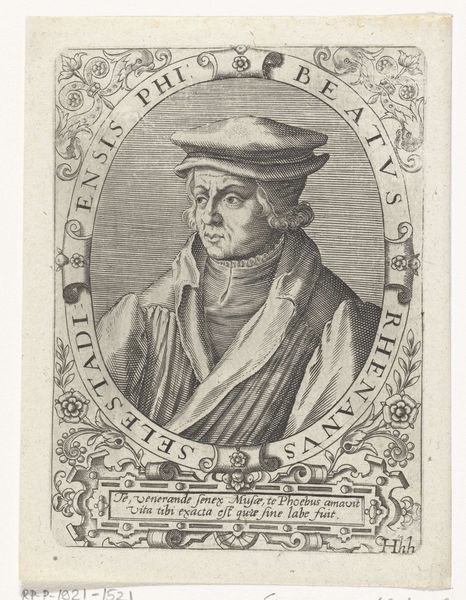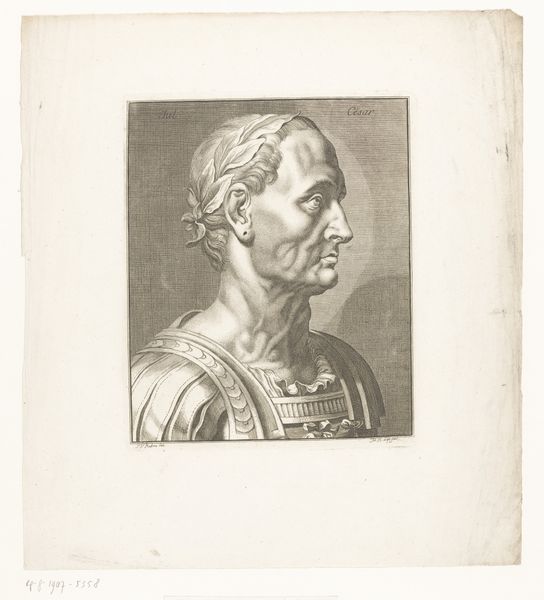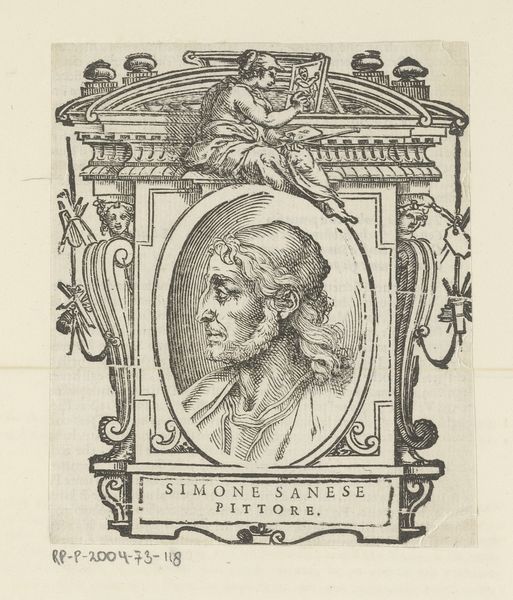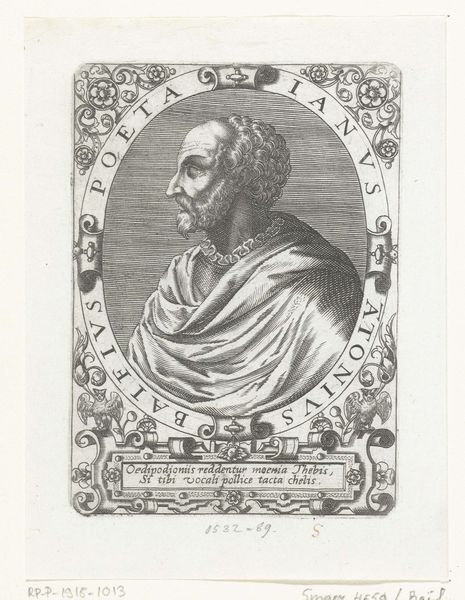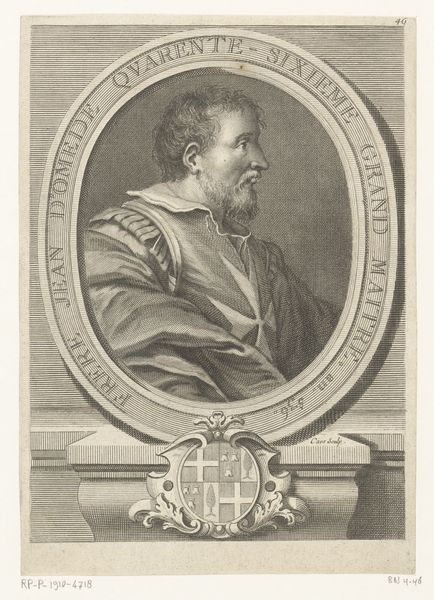
print, engraving
#
portrait
# print
#
old engraving style
#
classical-realism
#
figuration
#
11_renaissance
#
history-painting
#
academic-art
#
engraving
Dimensions: height 175 mm, width 121 mm
Copyright: Rijks Museum: Open Domain
This print of Plato was made by René Boyvin around 1550, using the technique of engraving. In this process, a design is incised into a metal plate, and ink is then pressed into these grooves. The plate is wiped clean, and then paper is forced against it, picking up the ink and transferring the image. The crisp lines and tonal gradations we see here are the result of Boyvin's skilled manipulation of the burin, the tool used to carve into the metal. Engraving was a key technology in the Renaissance, allowing images and ideas to be disseminated widely, influencing art, science, and culture. This particular print, with its classical subject matter and refined execution, reflects the era's humanist values. The act of engraving itself, requiring precision and patience, mirrors the intellectual rigor associated with Plato's philosophical pursuits. So, next time you look at a print, consider the labor involved in its creation and the role it played in shaping the world around it.
Comments
No comments
Be the first to comment and join the conversation on the ultimate creative platform.
